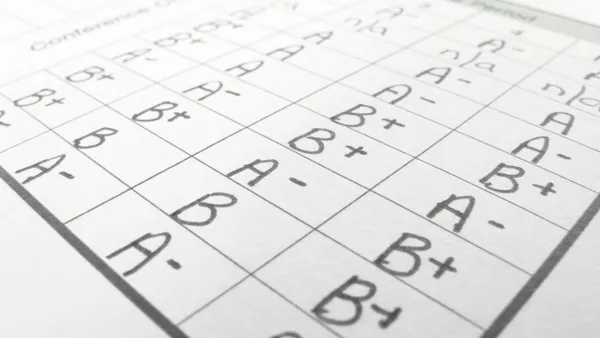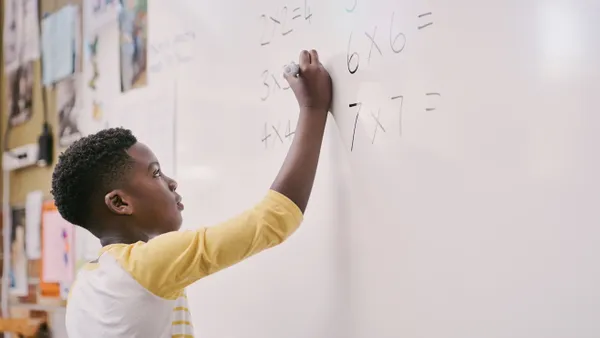Dive Brief:
- Penguin Random House — joined by five other publishers, the Authors Guild, Idaho’s Donnelly Public Library District, and authors, parents, students and a teacher — on Tuesday sued the state of Idaho over book-banning provisions in a new state law.
- The plaintiffs in Penguin Random House, LLC, et al. v. Labrador allege that HB 710, which was enacted in July 2024, is unconstitutional and puts the burden on schools and public libraries to “guess whether any member of the public might file an objection to a book whose message they disagree with” based on a “vague and overbroad” definition of materials “harmful to minors.”
- Under the law, schools and public libraries could face “onerous book challenge review procedures, liability, and monetary penalties” if anyone under age 18 accesses books or materials deemed “harmful,” regardless of the work’s literary or educational merit, according to the lawsuit.
Dive Insight:
The Idaho law, according to Penguin Random House's website, impacts classics and bestsellers such as Kurt Vonnegut’s “Slaughterhouse-Five,” Toni Morrison’s “The Bluest Eye,” Margaret Atwood’s “The Handmaid’s Tale,” Maya Angelou’s “I Know Why the Caged Bird Sings,” and George R.R. Martin’s “A Game of Thrones.”
Nonfiction books like Lynda Madaras’ “The ‘What’s Happening to My Body?’ Book for Girls” and titles about the Holocaust and other historical events could also be targeted, the publisher said.
The lawsuit, filed under the First and 14th Amendments, marks Penguin Random House’s third such legal action against book banning in just over a year. It comes the same week as a lawsuit filed by the ACLU of Arkansas on behalf of a public county librarian who was fired for opposing a book ban effort.
In late 2023, Penguin Random House, along with authors Jodi Picoult and John Green, joined Iowa educators in challenging that state’s law restricting curriculum related to gender and sexuality. The Iowa law requires the removal of books from school libraries and classroom collections based on a definition of gender identity and sexual orientation so broad “that the prohibition could apply to all gender identities and any depiction of a romantic relationship,” the plaintiffs said.
Another suit against that law, brought by Lambda Legal and the ACLU of Iowa on behalf of LGBTQ+ advocacy nonprofit Iowa Safe Schools, is set to return to federal district court on Thursday. In August, the 8th U.S. Circuit Court of Appeals overturned the district court’s ruling and lifted a preliminary injunction against the law, calling the lower court’s analysis of the law “flawed.” The appeals court’s decision, however, returned the case to the district court for further pursuit under another analysis.
And in August, Penguin Random House, with five other publishers, challenged a Florida law under which they said books were removed from school libraries “under the guise of ‘pornography’” despite not being “remotely obscene.” Removed books included works by authors such as Maya Angelou, Ernest Hemingway, Toni Morrison and Leo Tolstoy.
Florida was among the earliest states to push the current wave of curriculum and book restrictions with its 2022 passage of HB 1557, referred to by activists as the “Don’t Say Gay” law. The measure was expanded from its original K-3 scope in 2023 to include pre-K through 8th grade.
According to free speech advocacy group PEN America, book bans reached a record high in the 2023-24 school year, ballooning to 10,046 instances compared to 3,362 the year prior.
In January, just days after President Donald Trump took office again, the U.S. Department of Education rescinded Biden-era guidance that said school districts could violate civil rights law by implementing book bans. In a statement framing book bans as a “hoax,” the department said parents and communities should decide on the removal of “age-inappropriate” books from schools, and that therefore the department’s Office for Civil Rights “has no role in these matters.”
The move sparked pushback from the American Library Association and EveryLibrary, a nonprofit that advocates against book bans, censorship, defunding efforts, and anti-library legislation.
In a Jan. 26 statement, the American Library Association said, “Federal judges have repeatedly ruled that removing books from school library shelves based on the objections of a person or group, or due to prejudice against a group — book banning — is unconstitutional censorship that violates students’ First Amendment rights.”













